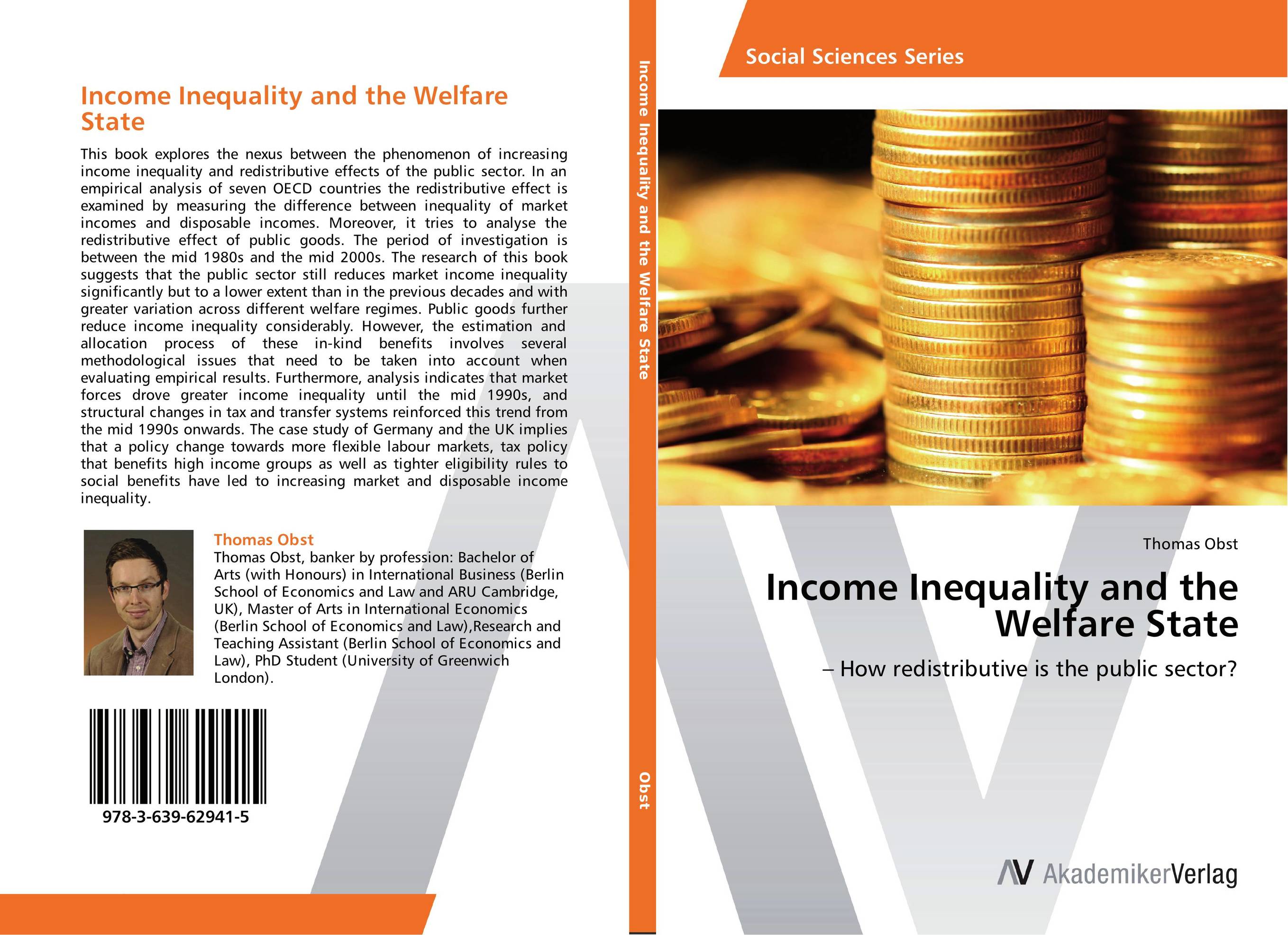| Поиск по каталогу |
|
(строгое соответствие)
|
- Профессиональная
- Научно-популярная
- Художественная
- Публицистика
- Детская
- Искусство
- Хобби, семья, дом
- Спорт
- Путеводители
- Блокноты, тетради, открытки
Income Inequality and the Welfare State. – How redistributive is the public sector?

В наличии
| Местонахождение: Алматы | Состояние экземпляра: новый |

Бумажная
версия
версия
Автор: Thomas Obst
ISBN: 9783639629415
Год издания: 2014
Формат книги: 60×90/16 (145×215 мм)
Количество страниц: 112
Издательство: AV Akademikerverlag
Цена: 25055 тг
Положить в корзину
| Способы доставки в город Алматы * комплектация (срок до отгрузки) не более 2 рабочих дней |
| Самовывоз из города Алматы (пункты самовывоза партнёра CDEK) |
| Курьерская доставка CDEK из города Москва |
| Доставка Почтой России из города Москва |
Аннотация: This book explores the nexus between the phenomenon of increasing income inequality and redistributive effects of the public sector. In an empirical analysis of seven OECD countries the redistributive effect is examined by measuring the difference between inequality of market incomes and disposable incomes. Moreover, it tries to analyse the redistributive effect of public goods. The period of investigation is between the mid 1980s and the mid 2000s. The research of this book suggests that the public sector still reduces market income inequality significantly but to a lower extent than in the previous decades and with greater variation across different welfare regimes. Public goods further reduce income inequality considerably. However, the estimation and allocation process of these in-kind benefits involves several methodological issues that need to be taken into account when evaluating empirical results. Furthermore, analysis indicates that market forces drove greater income inequality until the mid 1990s, and structural changes in tax and transfer systems reinforced this trend from the mid 1990s onwards. The case study of Germany and the UK implies that a policy change towards more flexible labour markets, tax policy that benefits high income groups as well as tighter eligibility rules to social benefits have led to increasing market and disposable income inequality.
Ключевые слова: public goods, Public Sector, redistribution, welfare state, Market and Disposable Income, tax and transfer systems, income inequality



